By Les Tan, Dawn Yip and Jan Lin
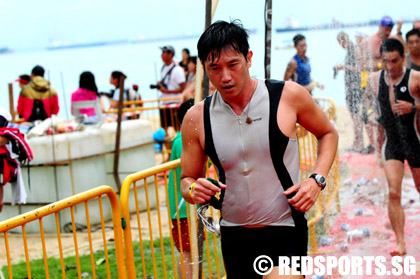
Teo Ser Luck competing in the Ironman 70.3 earlier this year. (Photo © Lai Jun Wei/Red Sports file photo)
Teo Ser Luck is the Senior Parliamentary Secretary for the Ministry of Community Development, Youth and Sports and the Ministry of Transport.
Before joining politics, he was in the private sector and his last position was as General Manager of DHL Express Singapore.
An Ironman triathlete, Ser Luck, who turns 41 on June 8th, has championed the role of sports, especially for the masses.
When the topic seizes him, Ser Luck also writes an occasional column for Red Sports.
Red Sports caught up with him for an exclusive interview.
Part 6 (final)
Red Sports: You mentioned the need to be careful about what we eat, as well as the exercising part. So what's your diet like? And what is your current training regime?
Teo Ser Luck: Let's start with food – more veggies, less meat. When I begin my training routine, which is when I train for a race, I eat anything I want. It just burns. On a regular basis, I try to eat less fried food.
So what's your training regime like? Because now you do run 2-3 times a week, don’t you?
Yes I try, and then I try to do a long run over the weekend – 2 hours, 3 hours long, that's the most enjoyable part of the training, to run long. Weekdays, if I can. I'm better in control of my schedule now. So I try to wake up early in the morning to run as well. I can sleep very late, and wake up very early.
Is this a habit since young?
No, a habit since I came back from China. (I was) overweight and I started to do this. When I was running a company, I only have the early mornings to train. If I have time, then lunch time. Now, it’s just early mornings or lunch time. I try to train everyday, swimming and running. I try. But it’s difficult to keep up.
What distance do you cover? Do you go by the length of training?
Yes, it depends on the mood. 1 hour at least. But it depends on the mood. And there are a lot of papers to read in ministry work, so most of the time I end up cycling. I think maybe if you can do 20 minutes or 30 minutes, it’s sufficient. It’s about consistency rather than the length of time.
How do you feel that sports has shaped your values or the person you are today? What has it taught you?
Almost everything. It started from Olympics actually. When I learnt about sports values, it was the Olympics. Because I started reading about the boycott of Moscow Olympics when I was in Sec 1 or Sec 2, so then I got interested. The 1984 Summer Olympics in Russia, the US decided to boycott. Why people didn’t want to go for things like that? And this Olympics seem to be a big thing, so I started following the Summer Olympics.
Then I started to learn about the value of equal opportunities for all, about the Olympic oath talking about not the triumph, it’s the struggle and the process… and it’s about learning how to win and how to lose, rather than win and lose.
Of course, it’s also the discipline that (sports has) instilled in me, learning how to respect people, sportsmanship, overcome challenges, handling the ups and downs. So to me, that prepares me in life. In my career, I've had my ups and downs as well but it wasn't too difficult for me because in sports you have your ups and downs.
But you won't have a ‘worst moment’ because you always learn something from them, so I treated everything as a learning experience. So when I went into my corporate career, it’s the same thing, I just take it as it comes. I think that shaped my outlook.
Related Posts
"I think you join the girls," a primary school softball coach once told Teo Ser Luck (Part 1)
"JC life was quite interesting, that was where I met my wife." An interview with Teo Ser Luck (Part 2)
"I feel that for schools, the best is: Don't focus so much on winning." An interview with Teo Ser Luck (Part 3)
"You bring the foreign talent in and then you compete." An interview with Teo Ser Luck (Part 4)
"YOG is not about medals, it's about the education and culture." An interview with Teo Ser Luck (Part 5)

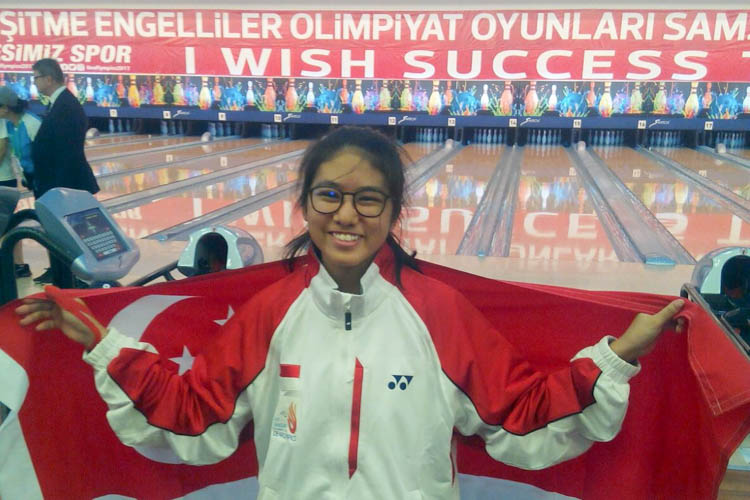
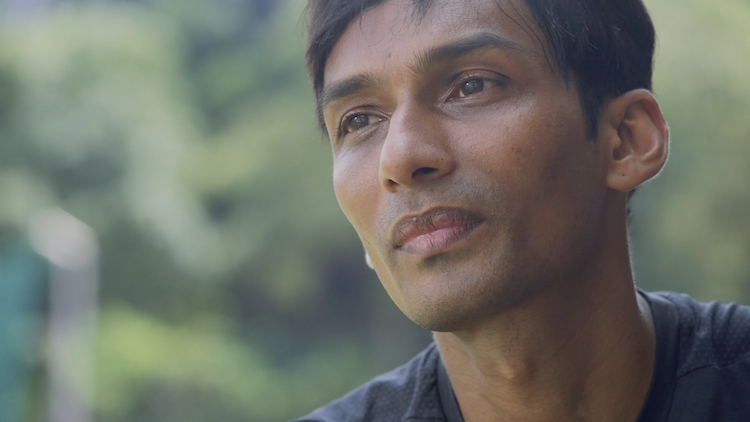
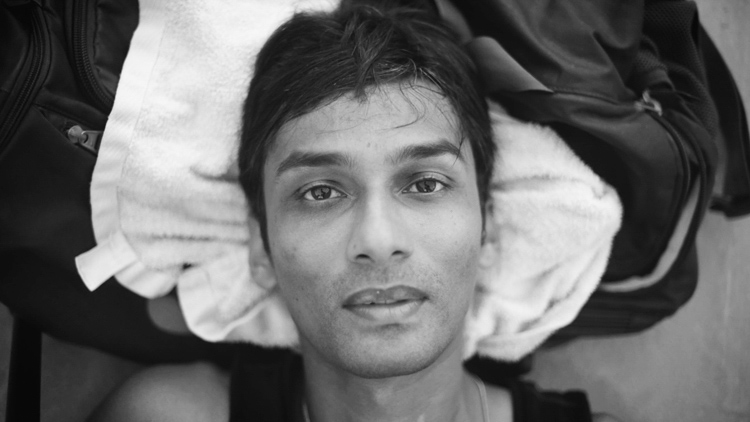
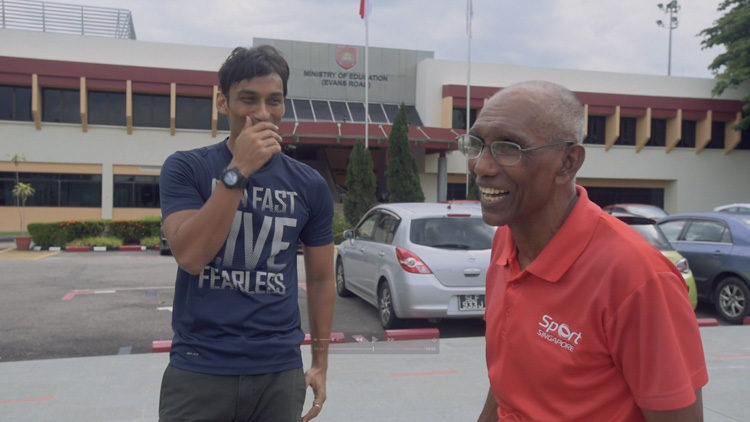
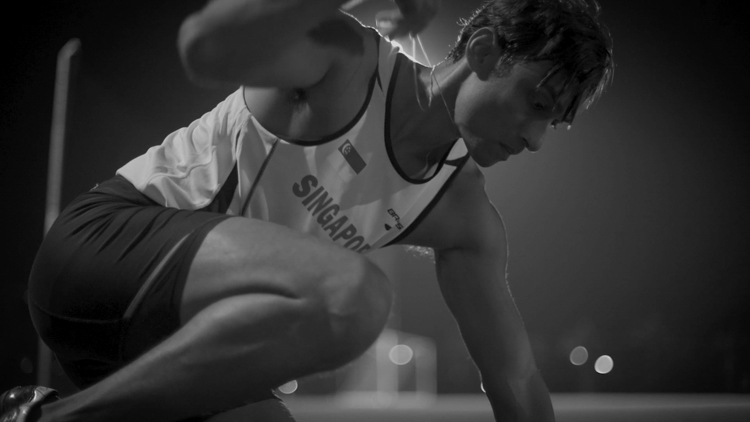
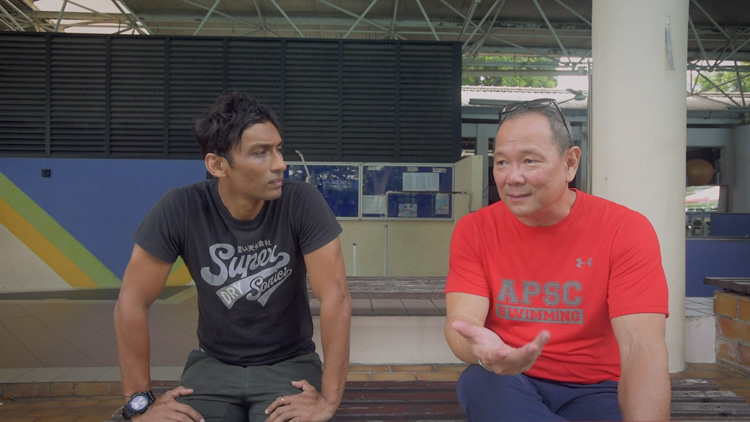
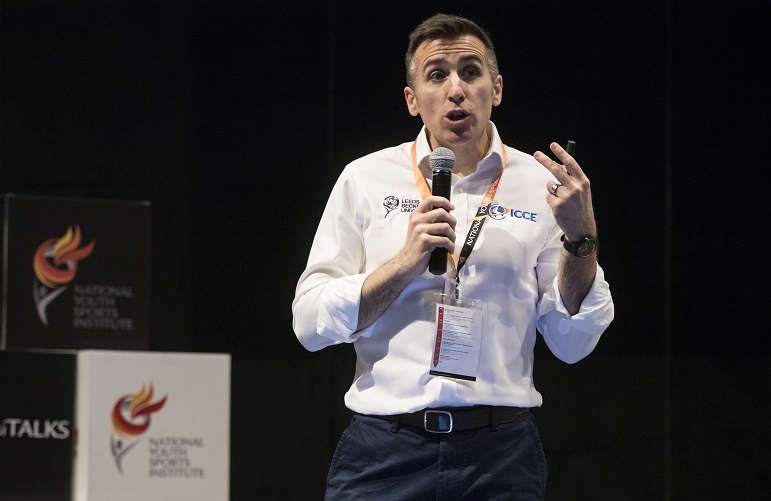
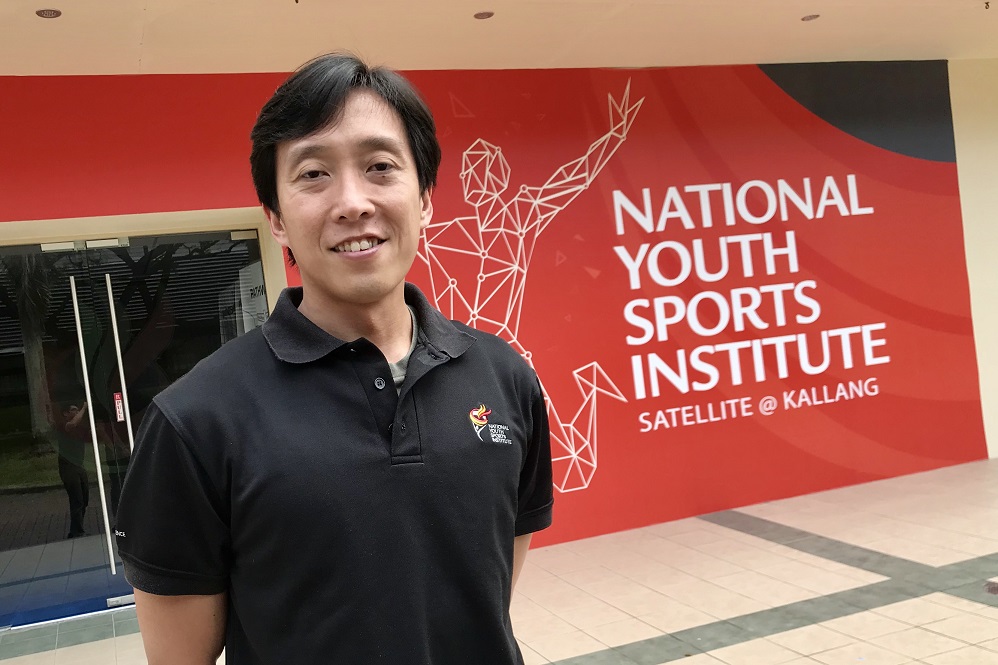
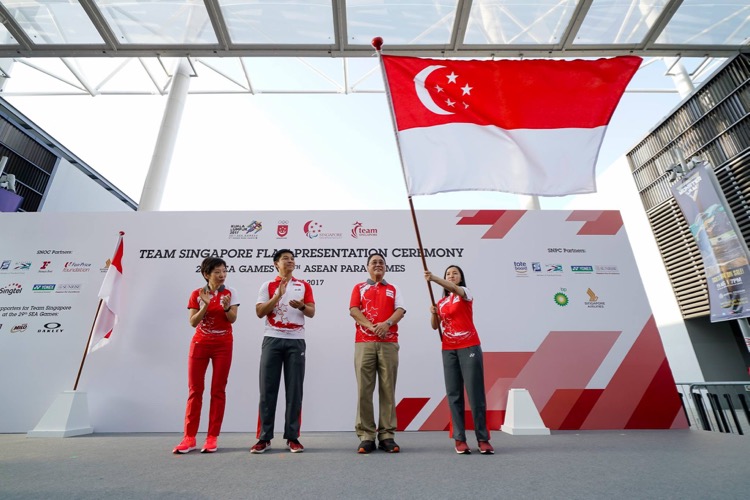
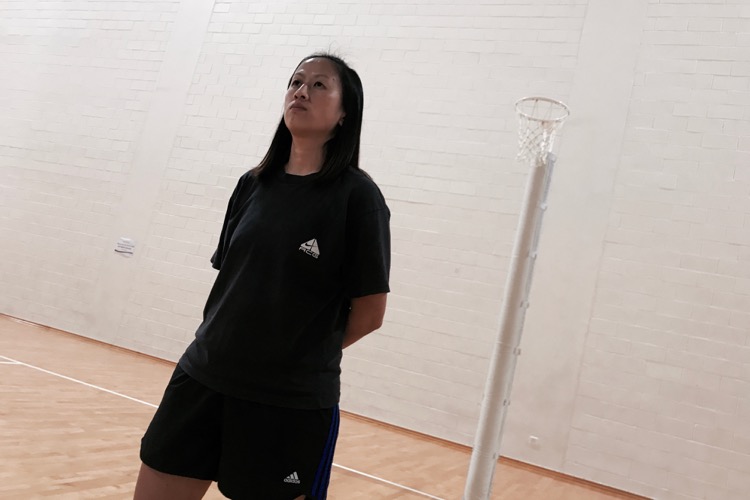
[…] Stories “It’s about learning how to win and how to lose.” An interview with Teo Ser Luck (Part 6) "I think you join the girls," a primary school softball coach once told Teo Ser Luck (Part […]
It’s ok, Uncle Les. There are always detractors and supporters in everything. Even highly successful conglomerates like Apple, what less us? Heh.
People don’t always know what’s good for them and I speak for myself too (in this case, the good the website does for the local sports community). From ginseng tea to wise counsel to Jesus Christ, men have been known to ridicule good things. Heh. It’s nothing different, is it?
I am very sure we have more than our fair share of supporters and as for people like anon, their negative viewpoint will always limit their ability to be impacted as fully as they could be by any one product.
Thanks, Colt. You are quite right.
Anyway, we have to be half-mad to do this site anywhere. So we are a bit screwy. : )
at least Les is all screwed up and tighten. Isn’t that a good thing than screw loose ?
les is seriously screw up.
It’s “screwed” up. With a “d”. Without the “d” the insult is grammatically incorrect.
It really bothers me when people can’t insult correctly.
And yes, setting up Red Sports is a screwy idea. Nobody wants to do it. So why not try, I thought? Put up a free website for readers, then let them read, even insult me.
But it’s ok. That’s life.